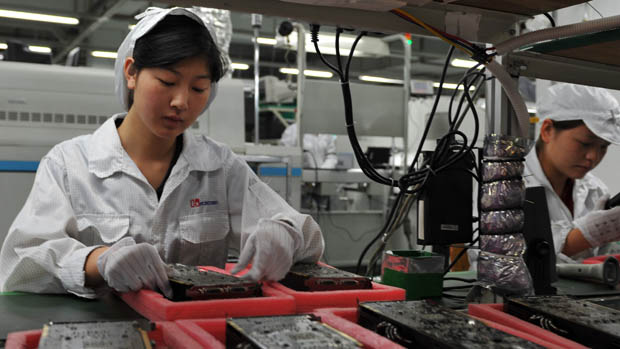Chinese schoolchildren build Alexa devices overnight
Overtime shifts at Foxconn factory break China's labour laws

A free daily email with the biggest news stories of the day – and the best features from TheWeek.com
You are now subscribed
Your newsletter sign-up was successful
Schoolchildren have been drafted in to make Amazon’s Alexa devices in China as part of a “controversial and often illegal attempt to meet production targets”, says The Guardian.
Based on leaked documents from Amazon’s supplier Foxconn and interviews with workers, the report reveals that children have been required to work nights and overtime to produce the smart-speaker devices, in breach of Chinese labour laws.
The paperwork suggests that the teenagers are drafted in from schools and technical colleges in and around the central southern city of Hengyang. They are classified as “interns”.
The Week
Escape your echo chamber. Get the facts behind the news, plus analysis from multiple perspectives.

Sign up for The Week's Free Newsletters
From our morning news briefing to a weekly Good News Newsletter, get the best of The Week delivered directly to your inbox.
From our morning news briefing to a weekly Good News Newsletter, get the best of The Week delivered directly to your inbox.
Teachers, who are paid by the factory to accompany them, are asked to encourage uncooperative pupils to accept overtime work on top of regular shifts.
More than 1,000 pupils are employed, aged from 16 to 18. Chinese factories are allowed to employ students aged 16 and older, but schoolchildren are not allowed to work nights or overtime.
Foxconn argued that the arrangement “provides students, who are all of a legal working age, with the opportunity to gain practical work experience and on-the-job training in a number of areas that will support their efforts to find employment following their graduation”.
Nevertheless, the company admitted that students had been employed illegally and said it was taking immediate action to fix the situation.
A free daily email with the biggest news stories of the day – and the best features from TheWeek.com
In a statement, the company said: “We have doubled the oversight and monitoring of the internship program with each relevant partner school to ensure that under no circumstances will interns [be] allowed to work overtime or nights.
“There have been instances in the past where lax oversight on the part of the local management team has allowed this to happen and, while the impacted interns were paid the additional wages associated with these shifts, this is not acceptable and we have taken immediate steps to ensure it will not be repeated.”
Last year, The Observer revealed that thousands of agency workers who make its Echo smart speakers and Kindles in China were hired and paid illegally by Foxconn.